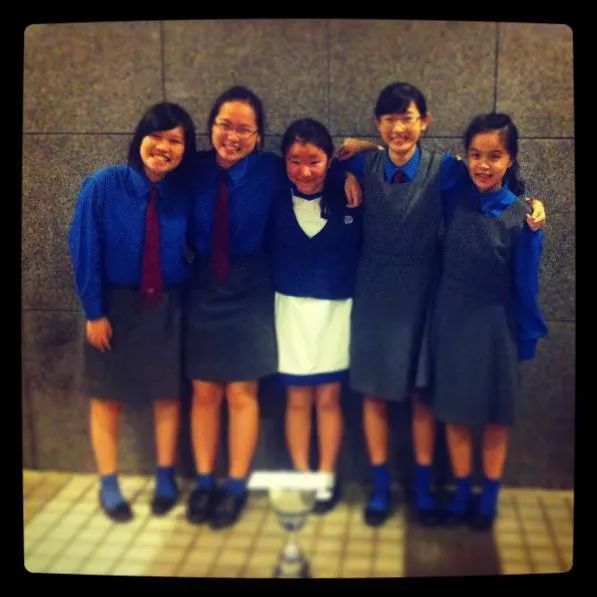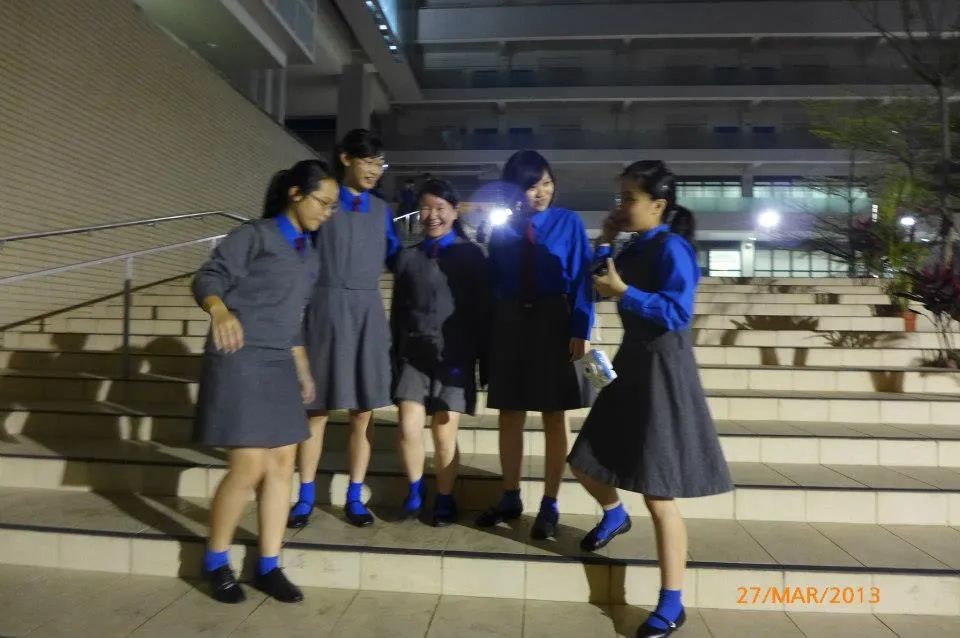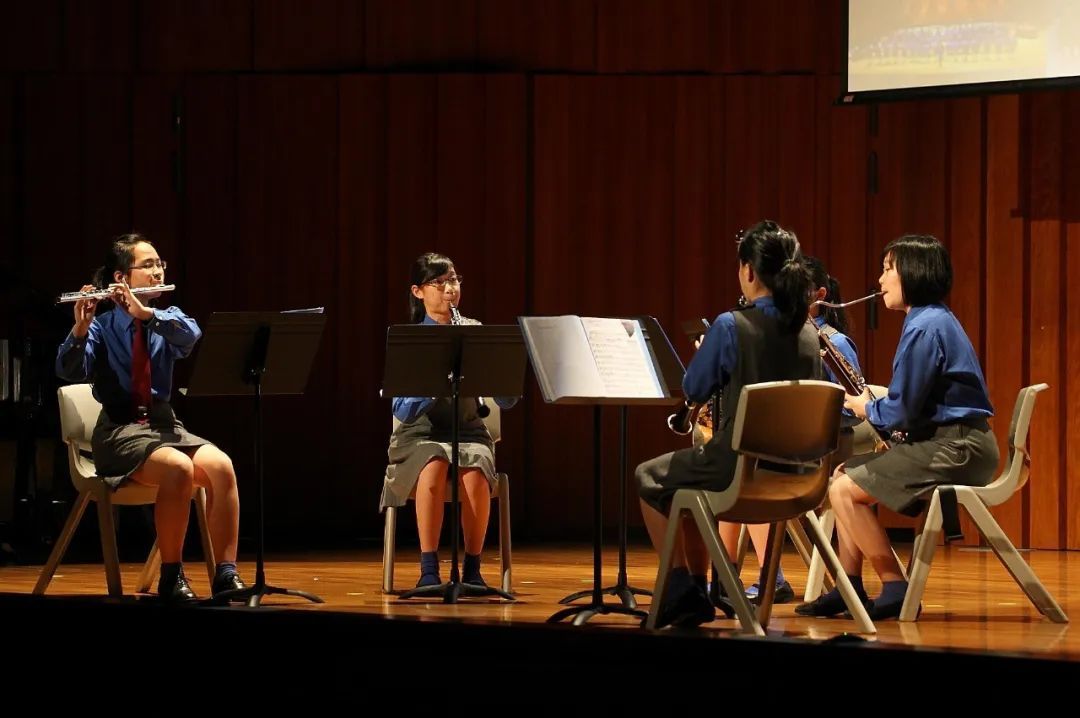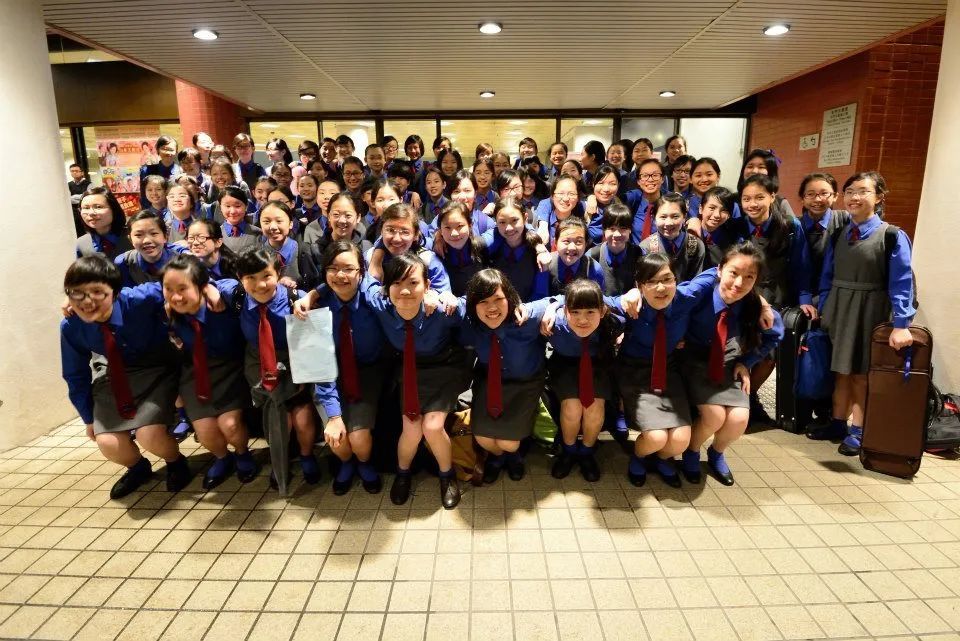Cruel DSE makes top female students miss their musical dreams - a realistic sample of the moon and sixpence
In primary school, she studied at St. Mary Canossian School; in secondary school, she studied at Diocesan Girls' College, a prestigious school with a long history in Hong Kong. Diocesan has a nearly 100% enrollment rate, and performs extremely well in music and sports. Alumni include Li Ka-shing's confidante Zhou Kaixuan, the gambling king's daughter He Chaofeng, and singer Karen Mok; she went to the Hong Kong University of Science and Technology to study at the University of Birmingham as a graduate student.
She is Tiffany, my colleague, a local in Hong Kong, and a witness of the DSE in Hong Kong's college entrance examination.
At first I was curious about her because of her glittering resume; after a four-hour interview with her, I heard a realistic sample story about the moon and sixpence. In the Mainland, no one would underestimate the importance of the college entrance examination. The fate of thousands of people is determined by a few exam papers. I didn't expect this to happen in Hong Kong.
The following is her self-report.
moon and sixpence
The first time I proposed to my parents that I wanted to study music was in the third year of junior high school.
After dinner one day, I was lying on my parents' bed and they were sitting by the bed chatting. After hesitating for a long time, I mustered up the courage to tell them, I want to apply for the Hong Kong Academy for Performing Arts and take the path of music.
The Hong Kong Academy for Performing Arts is the only public university in Hong Kong that trains talents in music, dance, drama and other arts, and it is also the highest institution in the field of arts in Hong Kong.
The process of applying to the Hong Kong Academy for Performing Arts is complicated. You have to write an application letter, find a recommender, submit your academic records over the past years, and go to a live performance interview.
But I still feel hopeful.
I started learning the piano at the age of 4 and the bassoon at the age of 10; at the age of 15, I obtained the Bassoon Performance Certificate (the performance level generally refers to the level above grade 8); in junior high school, after various screenings, I entered the establishment The 24-year-old Hong Kong Children's Symphony Orchestra has toured in dozens of mainland cities including Beijing, Shanghai, Qingdao, and Fujian.
I studied at Diocesan Girls' College, which is famous in Hong Kong for its music, sports and near 100% graduation rate. In the first year of school, I joined the Full Orchestra with about 80 members, and the Concert Band with about 60 members, and became the principal bassoon of both orchestras a year later.
After becoming the principal bassoon, I joined the Wind Ensemble. There are only five members of the woodwind quintet, and they are the best flute, clarinet, oboe, bassoon and horn players in the school.
For more than ten years, music has been my label, my pride, and the meaning of my life.
I fell in love with classical music because of the bassoon. I like the second chapter of Tchaikovsky's Fifth Symphony the most, and I like the impermanent fate that this movement tells;
When I rehearse with other musicians, I use notes to connect each other's tacit understanding, and the process of slowly forming a plate of loose sand;
I like to stand on stage with my bassoon, pouring emotions into the music and conveying it to the audience through performance;
I like to finish the curtain call, and when the conductor introduces the musicians one by one, my name is called, I stand up to salute, and the applause from the audience belongs only to me.
What can resist true love?
So when my father said that my application to the Hong Kong Academy for Performing Arts was whimsical, that "it will be difficult to live on music in the future", and that he "has never had confidence in this industry", I was utterly disappointed.
But I'm not a strong character, and I don't want to use extreme means - such as quarreling or running away from home, which hurt my parents' emotions and force them to agree.
Even if I am wronged or dissatisfied, I still accept the result calmly and obediently.
It's just that I never gave up.
When I was in high school, I would still talk to my parents about the Hong Kong Academy for Performing Arts at home, but every time I exchanged it, it was the indifference they pretended not to hear.
I also thought about applying for it on my own.
But the application process is complicated, and I will be afraid of being discovered by my parents; I have no courage to make such a major decision without my parents.
In the end, my only hope is on the DSE exam.
The University of Hong Kong has a major called Bachelor of Arts. The first year of admission will not subdivide the direction, and in the second year, you can choose different majors such as music, literature, and language.
If I can get into the Bachelor of Arts at the University of Hong Kong, I can choose to study music in my sophomore year.

caught off guard
During my sophomore year, I was promoted to captain of the Wind ensemble, principal of the entire Concert Band, and head of the entire Diocesan Orchestra Department.
In the strong music atmosphere, my classmates who basically play music know me; when I walk on the road, there are often classmates who I don’t know greet me.
Soon, the Hong Kong Inter-School Music Festival is coming.
The Inter-School Music Festival has a 71-year history in Hong Kong and is a music competition that almost all secondary schools in Hong Kong will participate in. The Inter-School Music Festival is held from February to March every year. The competition items include string music, wind music, piano, chorus, etc. The champion of each item will be invited to participate in the winner's concert after the competition. It will eventually be broadcast on RTHK.
At this festival, I had four competitions by myself: one competition for each of the three orchestras, plus a solo solo.
The outstanding Concert Band won the first place in the inter-school music festival for six years. As the new leader, I hope to continue to defend the championship. In order to urge everyone to practice, I plan team building activities to increase team cohesion; during rehearsal, I coordinate the time of more than 60 people; sometimes when people don't come together, I will find the musician's class and ask him why.
The woodwind quintet does not have a conductor. As the captain, in addition to coordinating the time, I will lead everyone to listen to the recorded music repeatedly every day, correct the details of the original song, and find the best way to interpret it.

At that time, I got up at 7am to practice every day, took a lunch break at noon to practice, and continued to practice after class at 3:40pm until I went home at 11pm.
When I was at my busiest, I could only eat one meal a day and take a few bites in a hurry; because of my practice, five blisters grew in my mouth, and I poured two cups of herbal tea every day to dispel fire.

In the end, in four games, I took two firsts and two seconds.
I will always remember the scene when I took the stage to accept the award on behalf of the Wind Band. I stood on the stage of the concert hall, struggling to raise the trophy and pennant for the first place, so that the more than 60 teammates in the audience could see it more clearly.
Off the stage, the applause continued, and my teammates screamed and cheered wildly.
At that moment, I felt a strong sense of honor and happiness.

But one test knocked me back to my original shape.
In the final exam of the second year of high school, I failed in physics, and my math scores dropped sharply. On the transcript, the principal gave me an "autographed inscription": The music is outstanding, but the grades are too poor.
Falling from ideal to reality, I broke out in a cold sweat and suddenly realized that the DSE exam is only a year away.
Because of the music, I missed too many classes. Many times, I returned to my seat after rehearsal, only to learn that there was a math test;
What's even more devastating is that when I chose the elective subjects for the DSE exam, I was very random.
DSE exam subjects are divided into compulsory and elective. The compulsory subjects are Chinese, English, mathematics and general education; the elective subjects are three courses offered by more than 20 schools, such as chemistry, physics, biology, geography, history, etc.
The choice of subjects will directly affect the university major and future employment, and most students are very cautious. For example, if you want to be a doctor, it is best to take chemistry or general science; if you want to be a programmer, you need to study communication technology.
The elective is in the third year of junior high school. At that time, my parents had just rejected my request to study music. I thought that since I couldn't study music, it didn't matter what I studied. I randomly filled in the three subjects with the best grades at that time, physics, economics and English literature. During the review and preparation for the exam, I was not good in science and was tortured by physics countless times.
Every day, I'm in a "I'm done, I really don't have time" jittery tug of war.
last stand
DSE is a tough battle, and many outstanding students have another choice: go to a high school abroad, take a foreign exam to study for an undergraduate degree abroad, or apply for a school in Hong Kong with foreign scores.
Our class originally consisted of more than 40 people, but by the third year of high school, more than half of the students had gone abroad.
Those left behind can only fight back and work hard every day.
During the lunch break, no one went to eat, and everyone either brought meals or ordered takeout; during class, someone said that I didn’t know this question, and immediately someone said, “It’s okay, I’ll help you.”
For me, the biggest change is that the time that was spent on rehearsals is now devoted to learning.
I still get up at 7:00 and go out at 7:30, but I don’t have time to practice during the lunch break, so I can only frantically write the questions; I still end get out of class at 3:40, stop practicing after class, go to the cram school to do the questions, and go home at 11:00 pm; I don't have time to rehearse on weekends, so I continue to tutor. At that time, I had to take a total of seven cram schools, covering almost all the subjects to be tested.
The night before the English literature exam, I recalled my arguments against the mock questions, and suddenly found that I had forgotten all the texts I had memorized for some reason. At that moment, my whole body was trembling, almost suffocating, and I fell into obsessive-compulsive self-reproach, "Why do I have no memory at all? What should I do tomorrow?"
I quickly grabbed the book and read it, flipping through it until two o'clock at night before going to bed. After finally falling asleep, dreaming, dreaming of formal exams, doing questions, I really can't remember a single point of knowledge. Suddenly woke up, found it was just a dream, heaved a sigh of relief. Over and over again, didn't sleep all night.
I still remember the night before the exam, the whole family had dinner together. Suddenly, my parents took out a red envelope from the bag, with a golden talisman drawn on it; a red bag, narrow, square, the size of a Japanese imperial guard; and a crystal bracelet, saying yes I specially went to the temple and asked me to take it with me for the exam tomorrow.
I felt ashamed to the point of exploding, but before the exam started, I still put on the crystal bracelet and stuffed the red envelope and the kit into the purse of my jacket.
It was a sultry noon when the last economic exam was over. I dragged my friend, rode the cable car, went to the top of the Victoria Peak, the wind was blowing, and I stopped thinking about anything related to the exam.
Three months later, the DSE results came out.
Hong Kong's score is different from that of the mainland, with 5 stars in a single subject being the highest score, and 5 stars in 7 subjects being the champion. I'm 5 4 stars, 2 5 stars - the worst I've estimated on the practice test.
When filling out the application, I wrote the Bachelor of Arts in the first column; in the second column, with reference to the opinions of my parents and previous university admissions, I filled in the Hong Kong University of Science and Technology Global China Studies major.
A few days later, I received an acceptance letter from Hong Kong University of Science and Technology.
loss and forgiveness
One day after the college entrance examination, I was shopping, and I met a former music teacher. The teacher asked me, where do I study now? I say HKUST. He said, ah, how come you didn't go to conservatory. I was a little embarrassed and said, how can someone like me go to music school. He said, if you can't read it, who else can?
Then I discovered that not going to music school was not the worst thing.
Because of preparing for the DSE exam, I hardly touched the bassoon for more than a year. At that time, a musician teacher asked me if there was an orchestra going to Vienna to perform, and there was no bassoon player, would you like to go?
I was planning to pick up the bassoon, and after thinking about it, I thought this might be an opportunity to regain the feel, so I agreed.
In the beginning, both practice and performance worked well. But the entire tour lasted 11 days, and as it got to the end, my stamina became less and less able to keep up. I used to be able to practice from morning to night, but within two hours of rehearsal in Vienna, my mouth and hands were shaking uncontrollably.
It was obvious to me that my once-strong muscle memory was gradually loosening.
Finally, at a concert, I screwed everything up.
At this concert, I have a solo. This solo requires a long, melodious, flat note with a steady breath, and the one that showcases my skills the most, my voice is jittery, up-and-down, and extremely harsh.
I stood on the stage, utterly ashamed, and instinctively wanted to "vomit".
No one in the band criticized me, and I didn't receive negative comments from the audience, but I was caught in a huge gap - I know how good I was and how bad I am now.
When I got home, I tucked the bassoon into the most hidden corner of the bedroom, between the bookcase and the bed.
Until now, I haven't opened it again.
In the first two years of university, I found that I had lost my musical aura, and I was not good-looking, and I was a little fat; I was very introverted, and I was not very good at speaking; my grades were not very good, and I rarely got first place in my homework.
I am so ordinary.
At that time, I couldn't listen to classical music either.
One day, my father bought a new pair of speakers and tested the effect with classical music. I locked myself in my room and cried as I listened to the music coming from the living room, thinking, I used to be able to play these tunes too, and now I have completely lost the ability to play it. I blame myself for being too cowardly, and I blame my father for rejecting my dream.
One day in my junior year, on a whim, I opened a music platform on my computer and played the second chapter of my favorite Tchaikovsky Fifth Symphony.
Perhaps it is the power of time, I no longer want to cry, but only feel a long-lost peace. There is regret, there is relief, and more is the realization that ordinary may be the essence of everyone. I seem to have suddenly gained a right to be happy again.
//////
The original text was written on July 7, 2020. Come to Matters to save a file.
Like my work? Don't forget to support and clap, let me know that you are with me on the road of creation. Keep this enthusiasm together!

- Author
- More